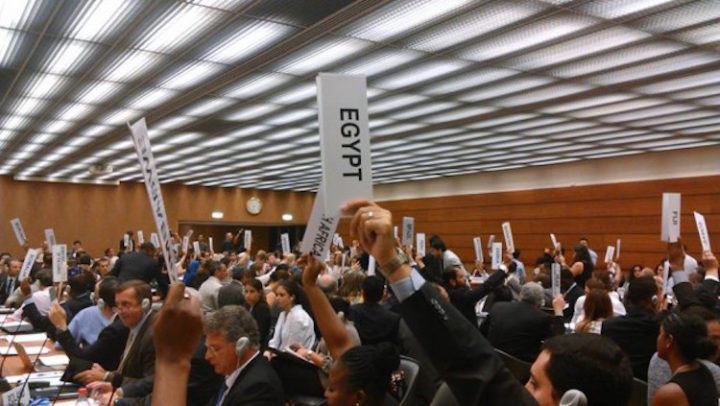United Nations disarmament talks concluded in Geneva on Friday 19th of August with the overwhelming majority of nations signalling their intention to launch negotiations in 2017 for a global ban on nuclear weapons.
One hundred and seven nations in Africa, Latin America, the Caribbean, Southeast Asia and the Pacific, together with several in Europe, united behind a proposal to convene a conference next year to outlaw nuclear weapons.
A small handful of nations argued that nuclear weapons are essential for their security and therefore should not be prohibited. However, these opponents failed to block the majority and prevent negotiations from proceeding.
The Geneva talks began in February and continued in May and August as part of a special UN working group established last year to advance nuclear disarmament negotiations which have long been stalled at the UN.
The group today adopted its final report by vote. The report recommends that a conference be held next year to negotiate “a legally binding instrument to prohibit nuclear weapons, leading towards their total elimination”.
Nuclear weapons remain the only weapons of mass destruction not yet prohibited under international law, despite their inhumane and indiscriminate nature. The proposed ban would address this legal anomaly.
“There can be no doubt that a majority of UN members intend to pursue negotiations next year on a treaty banning nuclear weapons,” said Beatrice Fihn, executive director of the International Campaign to Abolish Nuclear Weapons (ICAN).
“This is a significant moment in the seven-decade-long global struggle to rid the world of the worst weapons of mass destruction,” she said. “The UN working group achieved a breakthrough today.”
“We expect that, based on the recommendations of the working group, the UN General Assembly will adopt a resolution this autumn to establish the mandate for negotiations on a ban on nuclear weapons in 2017.”










